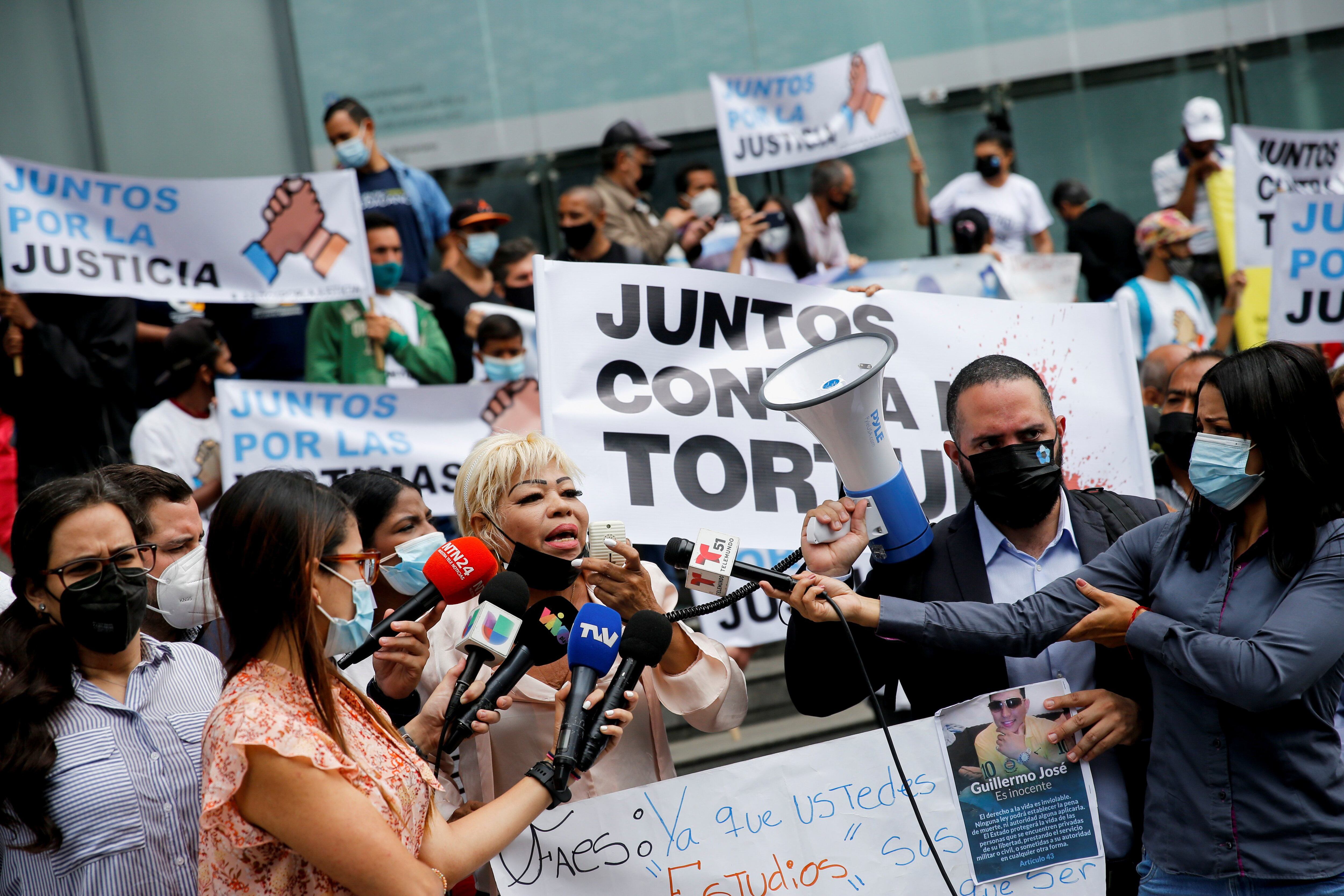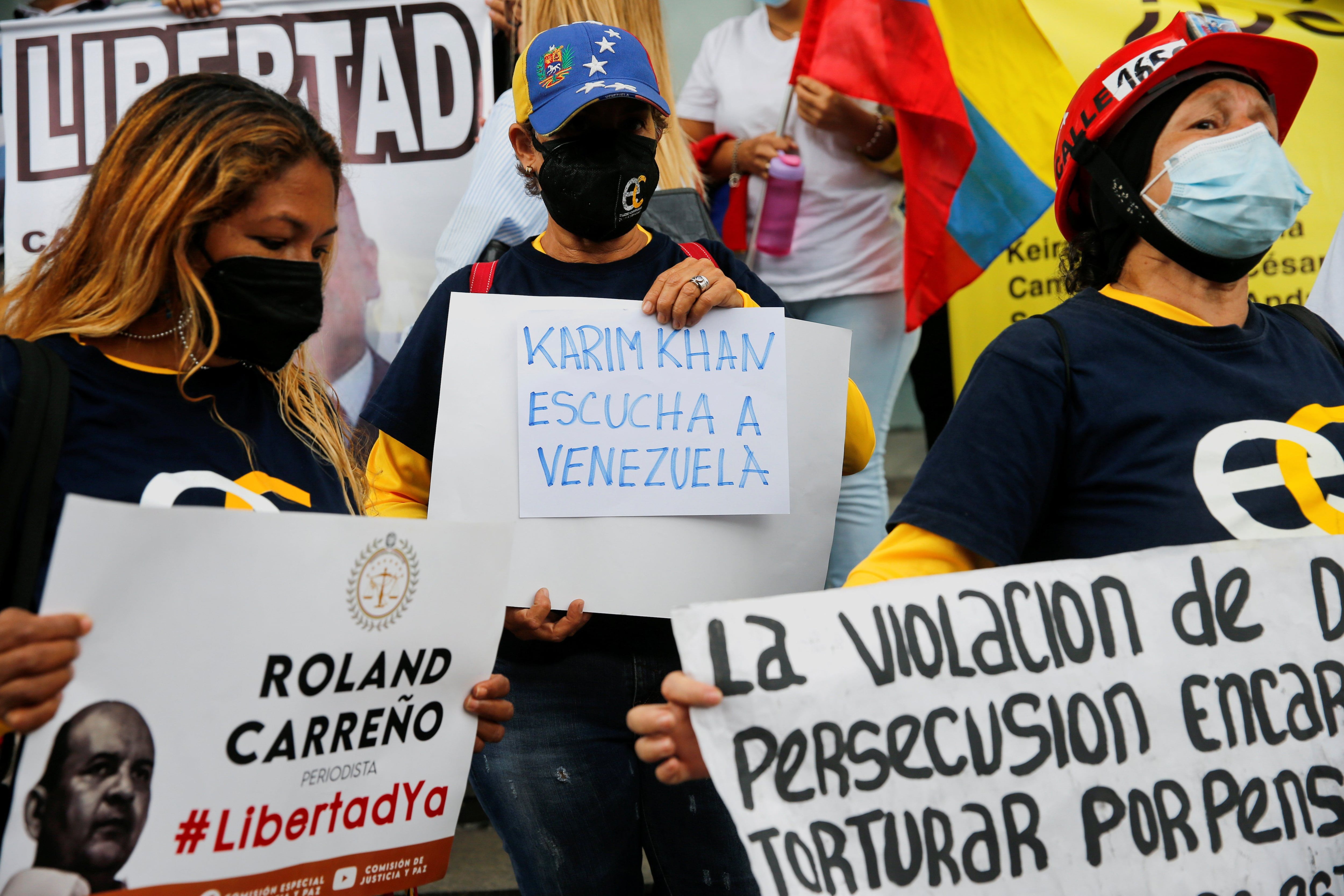Today Wednesday 3 concludes the visit of the prosecutor of the International Criminal Court, Karim Khan, a Venezuela, where he spent three days collecting allegedly relevant information. Upon his return to The Hague, he will decide whether to open an investigation for crimes against humanity or not.
It is a process that began in 2018, when several countries -among them Colombia, Chile, Peru and Canada– they asked the supranational court to put the magnifying glass on Nicolas Maduro and his regime in relation to the iron fist repression of the citizen protests of 2017.
READ ALSO: US Prosecutor’s Office asks to dismiss 7 of the 8 money laundering charges against Álex Saab
The human rights violations they were blatant. While the ruling party was seizing power from apparently rigged elections (and shaping a National Constituent Assembly taken from the sleeve), the opponents of the regime took to the streets.
And, of course, that could not be allowed.
- Why is the new bolivar unknown to Venezuelans a month after its entry into circulation?
- British Embassy in Caracas resumes delivery of visit visas to Venezuelans
- Maduro asks to prepare for a “great victory for democracy” in elections
France 24 recalls that there was “a balance of 127 dead and thousands of injured”And that the ruling party and the opponents pointed out each other as guilty.
In total there were more than a hundred days of protest and of “clashes between civilians and the police”. With that, on July 16, “more than 7 million Venezuelans rejected” that Constitution changed, although to no avail.
According to him Venezuelan Observatory of Social Conflict, in a matter of four months, 6,729 demonstrations nationwide, an increase of 157% over the previous year.
“It should be noted that in these 4 months, violent actions by paramilitary groups were recorded in at least 523 protests”.
One of those who were killed, remember José Carrasquero, Professor of Political Science at the Simón Bolívar University of Caracas, it was Oscar Perez. “It was eThis boy who got on a helicopter and flew over Caracas showing the Venezuelan flag”.
This is how, says the BBC, he became one of the most wanted in the country: his face “it was seen on the walls of the Caracas airport, where he was described as ‘terrorist and fascist’ “.
READ ALSO: Maduro thanks the prosecutor of the International Criminal Court for his willingness to meet in Caracas
Carrasquero adds: “Later, they discovered him hiding in a house and massacred him. They killed him and everyone who was there. And there is no open investigation into your case”.
From these types of crimes, the International Criminal Court (ICC) opened a preliminary examination to determine the role of the Maduro regime, which was added to a document from the UN Human Rights Council, published in September 2020.
It read:
“Venezuelan security forces have carried out horrific torture and murder using techniques such as electric shocks, genital mutilation and suffocation.”.
And in November of last year, who until recently was the ICC prosecutor, Fatou Bensouda, spoke about what has been happening since 2017:
“There is a reasonable basis to believe that crimes within the jurisdiction of the Court have been committed in Venezuela […] [Y pareciera que] the authorities are not really willing to investigate and / or prosecute such cases”.
Tricks and possible exits
And Khan came to Venezuela it is because the government itself invited him. Carrasquero notes that it is a strategy that is almost a year old and with which the Chavista regime seeks to show the country as a place where justice does work and that does not need the ICC. In other words, a way to wash your face in front of the international community.
“In recent months, they convicted torturers and policemen who blinded a boy”, He notes.
About, Mariano de Alba, political scientist and lawyer specialized in international law, note:
“There has been a lot of talk about makeup, that the Venezuelan government began to move political prisoners from military to regular jails, painted jails and detention centers”.
However, note, that would be completely irrelevant.
“The crucial issue that the ICC prosecutor’s office has to assess is whether there are serious, genuine investigations underway, which are progressing according to the procedural times, and whether they go against the highest officials.”.
If there are, then the ICC will have to wait and let the national justice system run its course (because it prevails). Otherwise -and if high-ranking officials are not being tried-, “it will very likely be decided to advance to the phase, the investigation”.
That’s right: we must not wait for Prosecutor Khan to condemn Maduro and his regime tomorrow; his job, for the moment, is another.
“Deciding whether or not to start the investigation phase will depend on whether the Venezuelan justice system reacts or not. I think there is still room for that, although there are also people who will say that it is impossible because there is no judicial independence.”.
What would be the path that would save Maduro? De Alba sums it up in one word: concessions.
“Perhaps the most extreme concession would be to betray one or two senior officials who were involved in the 2017 repression, to prosecute them. They could also give the ICC prosecutor’s office greater access to evidence handled by the Venezuelan prosecutor’s office, or allow one of its teams to settle in Venezuela.”.
It takes time, but will it come?
Determining whether the ICC prosecutor’s office will accuse the Maduro government of crimes against humanity is a gamble, and there are three reasons for it.
Venezuelan political analyst Luis Nunes emphasizes, firstly, that the times and the bureaucracy They will make the process lengthen, and that the possibility that this will happen when Maduro is old or has passed away should be considered.
“The ICC may do its homework, but all processes are very slow. For example, there are three judges who have to investigate a case, but there are so many crimes in Venezuela … I hope the prosecutor visits the Venezuelan Penal Forum, which uses a methodology to register all human rights violations”.
The other reason that makes Nunes skeptical is that the opposing force is decimated and cracked.
“It is not the same as years ago, it is divided. If they come together to show evidence against Hugo Chávez and Maduro, maybe they can achieve something. Even so … many of the Venezuelan leaders of weight are not even in the country”.
And finally, the very idea of summoning the prosecutor could be a ruse to delay the matter. José Carrasquero explains it:
“What Maduro does is add more information to the file, so that the ICC has to be more thorough in its investigation. That is paid with time”.
Time seems to be the keyword.
De Alba notes that the prosecutor Khan It is not obliged to give a public report, the maximum that can be aspired to is the publication of a press release that gives certain information.
“What we do know is that, at the beginning of December, the prosecution publishes a summary of the states of all the preliminary examinations that they have open, so, most likely, we will soon know how the exercise is going on the situation in Venezuela”.
- The Carter Center will send a mission to the Venezuelan elections: Is it a wise decision?
- Venezuela offered to exchange imprisoned Americans for Álex Saab, Maduro’s alleged biggest front man
- Venezuela opens the Simón Bolívar international bridge, the main pedestrian crossing on the border with Colombia
- Venezuela: Chavismo proposes to monitor social networks during campaign for regional and local elections
- Hugo Carvajal points out payments to Spanish politicians of Podemos from Venezuela
.

:quality(75)/cloudfront-us-east-1.images.arcpublishing.com/elcomercio/6UIHGMQG7ZFNLJ755EMQCLANTQ.JPG)



:quality(75)/cloudfront-us-east-1.images.arcpublishing.com/elcomercio/NPIXP45VUZGRTGKCZA3MCQXYWQ.jpg)
:quality(75)/cloudfront-us-east-1.images.arcpublishing.com/elcomercio/6KYDAZADVZBPXDN7LTBD5Z27DA.jpg)

:quality(75)/cloudfront-us-east-1.images.arcpublishing.com/elcomercio/UTKN2JBH6NDXDGHNIM2YEQFDGY.jpg)
